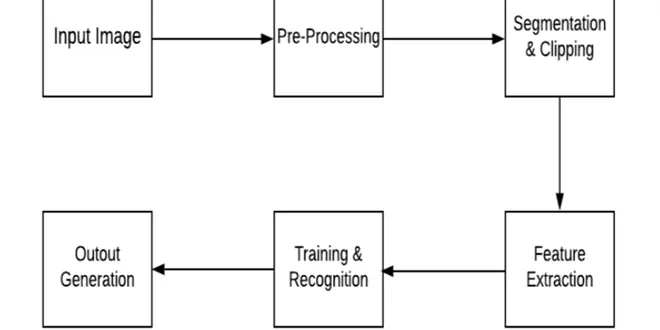Pattern recognition

Pattern Recognition Basics.
Pattern Recognition can be defined as the classification of the data on the basis of the knowledge gained or on the basis of statistical information extracted from patterns and their representations…
📚 Read more at Analytics Vidhya🔎 Find similar documents

Using Pattern Matching
Introducing Pattern Matching Pattern matching is a feature that is still being worked on. Some elements of this feature have been released as final features in the Java language, some have been relea...
📚 Read more at Learn Java🔎 Find similar documents

Digit recognition
Just like in traditional programming we first learn to print "Hello, world!", similarly in machine learning we first understand the solution to recognizing the images of handwritten digits. The…
📚 Read more at Towards Data Science🔎 Find similar documents

Finding patterns with rules
Machine learning algorithms are now synonymous with finding patterns in data but not all patterns are suitable for statistics based data-driven techniques, for example when these patterns don’t have…
📚 Read more at Towards Data Science🔎 Find similar documents

Face Recognition using Deep Learning
Image content analysis and pattern recognition are rapidly expanding areas of application today, thanks to the increased efficiency offered by the power of computers. Even though the systems proposed…...
📚 Read more at Towards Data Science🔎 Find similar documents

Time Series Pattern Recognition with Air Quality Sensor Data
· 1. Introduction · 2. Exploratory Data Analysis ∘ 2.1 Pattern Changes ∘ 2.2 Correlation Between Features · 3. Anomaly Detection and Pattern Recognition ∘ 3.1 Point Anomaly Detection (System…
📚 Read more at Towards Data Science🔎 Find similar documents

Handwritten Khmer Digit Recognition
Handwriting recognition is a task in categorizing given handwriting patterns into groups (categories). There are many methods to implement this task from a traditional machine learning approach to…
📚 Read more at Towards Data Science🔎 Find similar documents

Recognizing hand-written digits
Recognizing hand-written digits This example shows how scikit-learn can be used to recognize images of hand-written digits, from 0-9. Digits dataset The digits dataset consists of 8x8 pixel images of ...
📚 Read more at Scikit-learn Examples🔎 Find similar documents

Basics of Image Recognition: A beginner’s approach
“Just as electricity transformed almost everything 100 years ago, today I even have a tough time thinking of an industry that i do not think AI will transform within the next several years.” ~said by...
📚 Read more at Becoming Human: Artificial Intelligence Magazine🔎 Find similar documents

Using neural nets to recognize handwritten digits
The human visual system is one of the wonders of the world. Consider the following sequence of handwritten digits: Most people effortlessly recognize those digits as 504192. That ease is deceptive. In...
📚 Read more at Neural Networks and Deep Learning🔎 Find similar documents

Detecting patterns and generalizing
Before the advent of modern deep learning, images and sounds were unstructured data files, there was no way computers could interpret their contents. The computer vision area was dominated by…
📚 Read more at Analytics Vidhya🔎 Find similar documents

Handwritten Digit Recognition
The main objective is to classify the pattern into the handwritten digits provided by the MNIST data set of images. Manually written digits have an invariant position, shape, style, etc. so it…
📚 Read more at Python in Plain English🔎 Find similar documents

